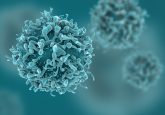Drive for development of improved diagnostic tests for Ebola

The current outbreak of Ebola in West Africa is resisting the ongoing efforts made to contain the virus. The slow and complex tests presently required to diagnose patients are an additional handicap in the struggle to stop the spread of the virus. Conventional methods of identification impose several challenges on diagnosis, such as the degree of technical expertise required to use the complex devices employed, and the need for rigorous laboratory biosafety.
At present, the standard test for the Ebola virus involves molecular assays that use the reverse-transcriptase polymerase chain reaction (RT-PCR). The diagnostic assays involve a number of steps leading to a total run time from 2 to 6 hours, and they require a full tube of blood. Each test costs around US$100, limiting the testing capacity – particularly in a resource-limited West African setting.
Conventional tests also have to be performed in specialized laboratories, which are relatively limited in the affected countries, and so the delay between samples being taken and a diagnosis being reached is increased further. This may lead to infected individuals remaining in the community, and so heightening the risk of virus transmission.
In order to try to combat these problems the WHO has launched two urgent initiatives to drive the development of new diagnostic tests. The first initiative seeks to reduce the barriers currently faced by diagnostic companies. The WHO has therefore issued a detailed outline of the ‘ideal’ diagnostic test, the criteria for which include: suitability to point-of-care testing, with no laboratory infrastructure required; results are produced in less than 30 minutes with fewer than three steps; and there are no exceptional biosafety requirements.
The second WHO initiative has established an emergency quality assessment mechanism: a rapid process for assessing the quality, safety and performance of any new diagnostic test. This emergency mechanism is currently reviewing five of the 16 tests currently submitted for assessment. These include conventional RT-PCR kits, ‘desktop’ PCR systems and new point-of-care devices.
A WHO expert consultation on novel Ebola diagnostic tests will be held in Geneva in December 2014 to discuss further progress and outstanding needs.
Source: Urgently needed: rapid, sensitive, safe and simple Ebola diagnostic tests.





